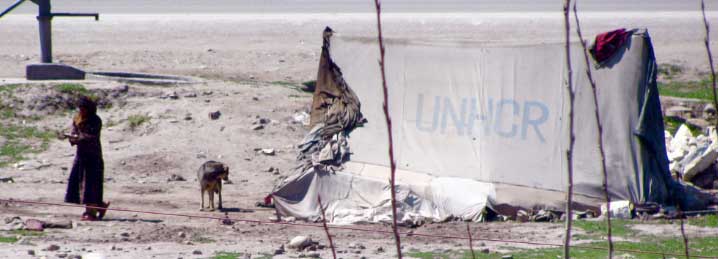
Mahmoud Mohieldin of the World Bank in a speech at the Islamic Banking and Investment forum in Singapore discussed the role Islamic finance can play in reduction of poverty and contribute to sustainable development within Organisation of Islamic Cooperation (OIC) countries.
World Bank Humanitarian Sukuk
Article Overview
Mr Mohieldin stated there was now discussion surrounding the issuance of an inaugural humanitarian sukuk program combined with cash waqf which could enable the use of sustainable humanitarian financing for protracted crisis situations. The intended program would leverage current capital market instruments and architecture to reach non-traditional and emerging donors. He highlighted at the beginning of 2016, 125 million people devastated by conflicts and natural disasters were in need of assistance, with a vast majority (71%) residing in the OIC countries.
Fintech and Islamic Finance
Financial technology (Fintech) was highlighted as a potential route to assist those in need. “Fintech can provide financially excluded people — including those in humanitarian crises — services through mobile phones and other means, to facilitate financial inclusion for traditionally underserved people, such as those affected by humanitarian crises. We know that 90 percent of Syrian refugees have access to smart phones, which can offer some opportunities. One interesting idea is an equity-based crowd-funding mobile app that can channel funds from investors to refugee entrepreneurs.”
Adapting to the New Macro Environment for Islamic Finance
In relation to reducing extreme poverty Mr Mohieldin stated “Islamic finance has a role to play here. We can and must do better. Ending extreme poverty is a moral imperative for humanity. Islamic finance has many important advantages which can make a difference in helping countries achieve the Sustainable Development Goals. It can help improve the stability of the financial sector, with features such as its profit- and loss-sharing arrangements, and requirements for a link with the real economy through the creation of physical assets. Islamic finance can also be an answer to those who, for cultural or religious reasons, exclude themselves from the financial system.”
He added “While the Islamic finance industry has expanded rapidly over the past decade, growing at 10-12 percent annually, financial inclusion and financial depth in predominantly Muslim nations still lags behind the rest of world. Moreover, there is a difference in access to finance and financial depth between Muslim countries with Islamic Banking and those without it.”
Islamic Banking Leads to Greater Financial Participation
The increased use of financial services within countries which offer Islamic banking services was highlighted, with 31 percent of the working age population having a bank account, compared to 17 percent in OIC countries without Islamic banking. Furthermore financial depth, measured as private sector credit to GDP, stands at 39.5 percent of GDP in OIC countries with Islamic finance, and 34 percent in OIC countries without Islamic banking (in 2011-2014).
Islamic Finance Development Needs
Mr Mohieldin highlighted areas within Islamic finance that require attention including:
- The need for stronger legal institutions that protect property rights and the honouring of contracts;
- Regulation of Islamic finance across countries with a focus on standardization of approaches;
- Adjustments in tax regulation to eliminate the debt bias in taxation — which simultaneously discriminates against the equity-based financing that Islamic finance provides;
- Incentives for academic institutions to deliver more relevant research and innovation in Islamic financial services and products;
- More active participation of national authorities in Sukuk markets to finance their public and private investments.







